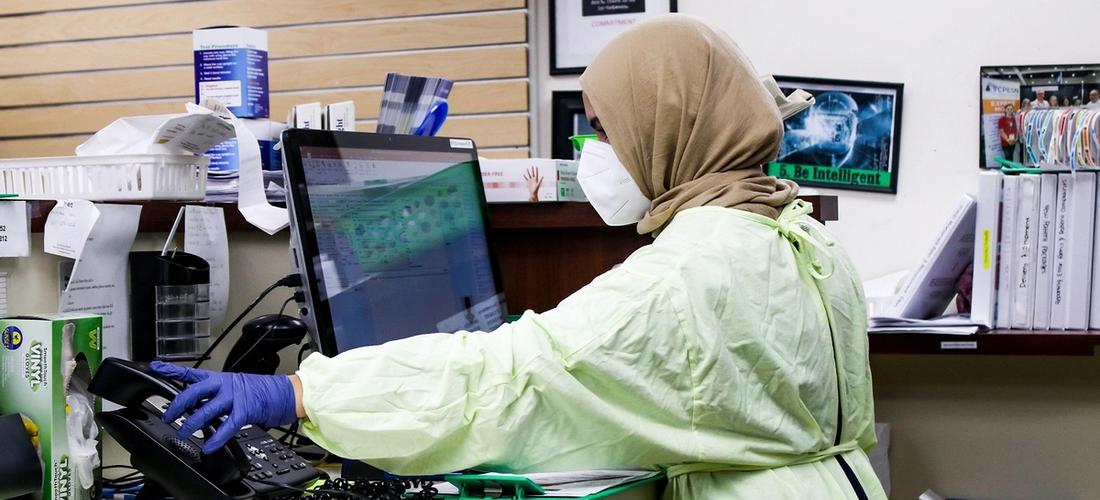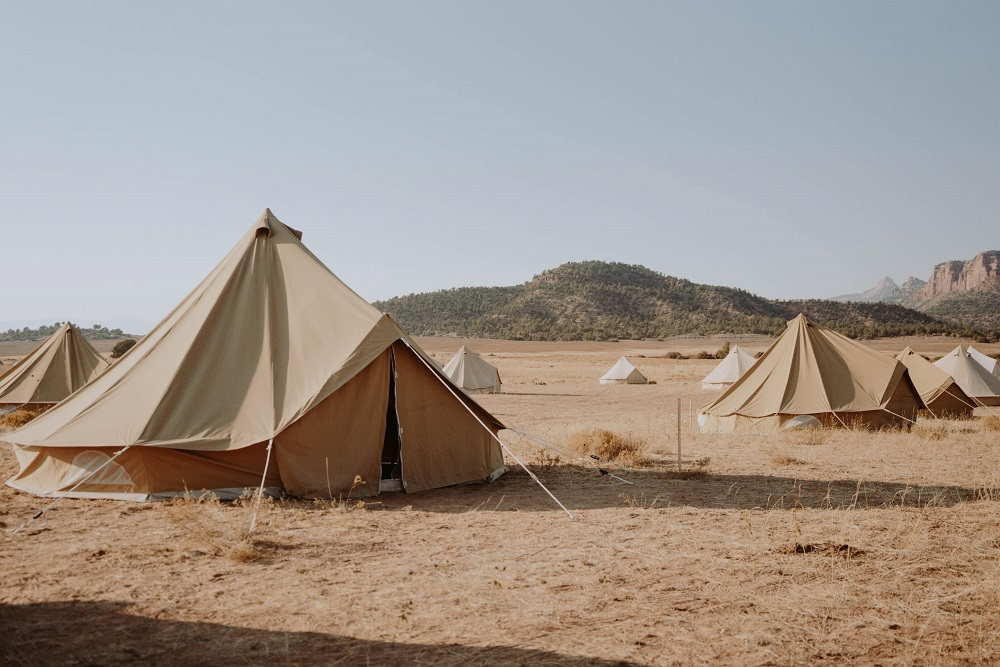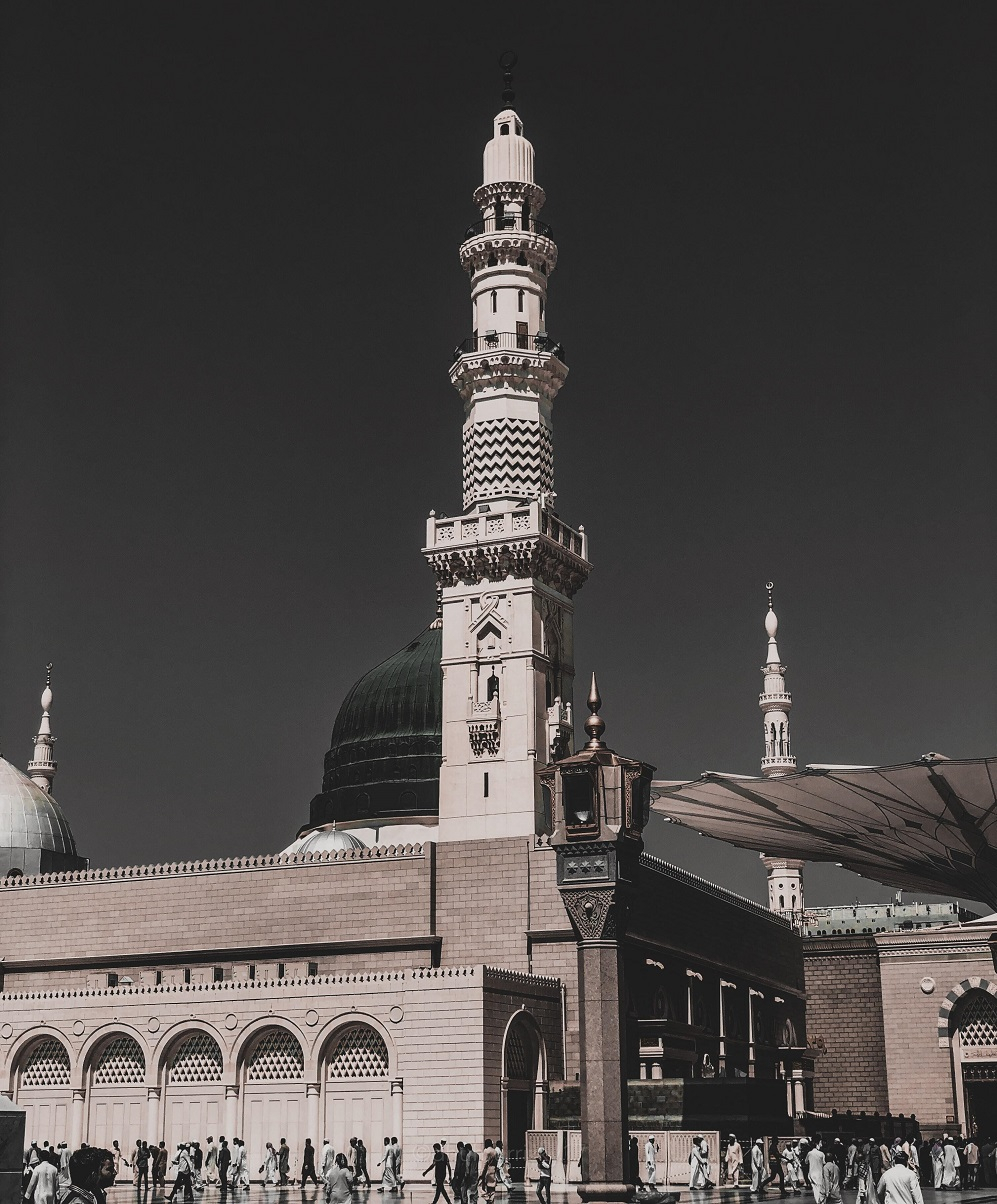Meet Rufaida Al-Aslamia, a Medical Pioneer Who Impacted Healthcare & Social Work
Faith
|
Mar 17, 2021
|
4 MIN READ

A Muslim doctor does her work in modern times. Image source: Jakayla Toney of Unsplash
Editor's note: For Women's History Month, we are sharing stories of some of our favorite Sahabiyyat, female companions of the Prophet Muhammad (saw). These women are the foundations of our histories, and their lives are multitude of lessons for us all.
If you don’t know the story and work of Rufaida Al-Aslamia (ra) from the time of the Prophet Muhammad (saw), you are missing out. As a working woman, I immediately connected to Rufaida’s (ra) story. Her role as an accomplished nurse and social worker transcends time and carries powerful lessons for all of us.
I was drawn to Rufaida’s (ra) life as a strong, independent woman who was uplifted and empowered by the men around her as a sharp contrast to the struggles women face today in a perpetuating patriarchal society. Rufaida’s (ra) reality juxtaposed against our own made me deeply reflect on how long we, as women, have been demanding our rights and advancing our cause when we were where we needed to be centuries ago!

Image source: Dziana Hasanbekava, Unsplash
Growing up, I was introduced to a small number of extraordinary sahabiyyat on a surface level through Saturday school at the local masjid and stories from my parents. I was well versed in their exemplary character and religious piety but not in the pivotal roles they played in their homes and communities as leaders, warriors, nurses, scholars and so much more.
To deeply understand our faith and the legacy of these incredible women is to realize the true extent of our rights and capabilities. It is on us to empower the next generation of women by consistently highlighting and celebrating the accomplishments and the impact of the sahabiyyat of our past.
A Renowned Muslim Nurse
Rufaida (ra) is one such sahabiyya. She is widely recognized as the first female nurse and surgeon in Islam. She accepted Islam early on and was one of the Ansar women who welcomed the Prophet upon his arrival to her hometown of Madinah. Many accounts of her life describe her as notably kind, patient, and empathetic – all of which shine through Rufaida’s (ra) consistent acts of service.
Rufaida (ra) began her path in medicine by learning from and assisting her father, Saad Al-Aslami, who was a physician. She was especially known for stabilizing patients and ensuring their proper hygiene in preparation for more invasive procedures. She provided expert-level care while continuously refining and broadening her skills through hands-on field work. Eventually, Rufaida (ra) courageously took her expertise to the battlefield. She cared for injured soldiers during the battles with Makkan tribes, including the Battle of Al Khandaq and the Battle of Khaibar.
Leading by Example

Image source: Hush Naidoo, Unsplash
Rufaida (ra) also took it upon herself to share her knowledge and teach other women to work in medicine. In the first ever documented mobile care units – such as we see today with medical field-tents or make-shift hospitals, Rufaida (ra) was able to provide hands-on training to women looking to help provide aid to the sick and wounded. She was then able to organize an invaluable network of nurses, many of which followed her lead and joined her in treating casualties of battle.
One particular story that struck me comes from the end of the Battle of Khaibar. The Prophet Muhammad (saw) was so impressed with Rufaida’s (ra) medical and nursing work that he assigned her a share of the bounty equivalent to that of the soldiers’ share! Imagine being recognized, empowered and encouraged by the greatest of mankind.
Once the war and battles came to an end, she was permitted by the Prophet (saw) to maintain what was essentially a small clinic in a tent situated inside Masjid Al-Nabawi. This allowed Rufaida (ra) to continue providing medical care and to train more women as nurses.
Fulfilling Her Purpose

Masjid Al Nabawi; image source: Dhuhrur Rizky, Unsplash
Rufaida’s (ra) unwavering devotion to caring for others is remarkable. When she wasn’t working as a nurse, she pursued social work and advocated for Muslims in need. She continuously served her community while serving her faith and left behind an incredible legacy that still impacts us today.
If there is anything I learned from Rufaida (ra) it’s not only do we have the capabilities to impact our world, but that we have a right to do so, with the blessings of the Prophet (saw) and the guiding light of other sahabiyyat.
May Allah (S) allow us to find our passion and fulfill our purpose while uplifting our women and connecting with our families, neighbors, and communities through sincere faith and service to one another.
Who are some of your favorite sahabiyyat and why? Share with us in the comments below!
Subscribe to be the first to know about new product releases, styling ideas and more.
What products are you interested in?

